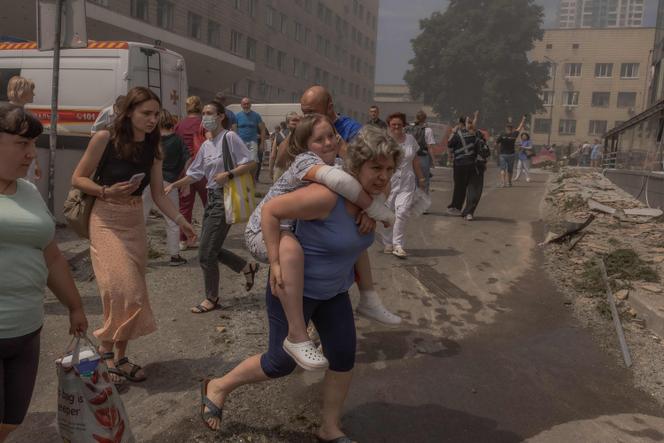


On Monday, July 8, Kyiv suffered one of the deadliest airstrikes since the start of the full-scale Russian invasion in February 2022. Russia targeted civilian infrastructure as Indian Prime Minister Narendra Modi met Vladimir Putin in Moscow. Three days earlier, Hungarian Prime Minister Viktor Orban visited the Kremlin to propose a "ceasefire" in Ukraine. The country's largest pediatric hospital, Ohmatdyt, and a private maternity hospital in Kyiv were hit by missiles, killing 27 people, including several children. The death toll is provisional, as bodies may still be buried under the rubble.
An hour after a Russian missile destroyed the two-story building housing the Ohmatdyt intensive care and hemodialysis unit, crowds of rescuers, hospital staff and military personnel in trucks filled the hospital courtyard, where the dust-laden air made it difficult to breathe. Some were busy freeing victims trapped under the rubble, while others were sweeping up broken glass and a large quantity of destroyed furniture. Volunteers had been pouring in all morning, bringing water and food to families and sick children.
Around 1 pm, a second air alert interrupted work. Near the hospital entrance, voices shouted: "A Russian drone is flying over Kyiv" and invited everyone to take cover. Fear of a second strike against the rescuers – a tactic used several times by Russia in recent months – prompted a swift, calm dispersal.
Dozens of families took refuge in the basement of the pediatric emergency room, waiting for the alarm to die down. Watching over her son Orestes, a 2 1/2-month-old premature infant sleeping in an incubator, 34-year-old Olga Melnyk recounted how she saw a doctor injured in the legs by shards of glass. "It was awful. I don't understand how something like that could happen." She recalled that the explosion occurred around 10 minutes after the hospital alarm sounded. Like the other patients and staff, she had taken refuge in the corridor: "First I heard distant explosions, then the one that hit the hospital. It was so powerful that the walls shook. I cried uncontrollably."
Further down the dark corridor, 24-year-old Natalia Koval held her son Nazar, 3 and a half, who had just had his adenoids removed. He was pale, frightened and started to cry. "When the alarm went off, we went out into the corridor on the 5th floor with the other patients. The explosion was so loud that I saw objects flying. People fell. My son was terrified." Natalia started crying and pleaded, "I just want to go home." Her husband took her hand to calm her, and said, gritting his teeth, "The Russians fired at a children's hospital on purpose."
You have 58.67% of this article left to read. The rest is for subscribers only.
